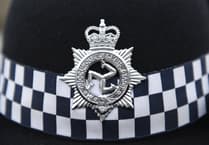Since the beginning of a medicinal cannabis pilot, there have been 1,329 prescriptions dispensed to 395 people.
A 12-month pilot began in December 2022, with Karson’s pharmacy as the sole dispenser of medicinal cannabis.
When the service started up, the government said that the pilot will allow Karson’s pharmacy in Onchan to operate the service for a minimum of 12 months to collect data that evidences need and demand to shape future service provision in the island.
In the first quarter of the pilot, from December to February, there were 455 prescriptions dispensed to 148 patients.
The figures grew in the second quarter, March to May, to 874 prescriptions dispensed to 335 patients.
The information was revealed as part of a written response, with the Speaker of the House, Juan Watterson asking Health and Social Care Minister Lawrie Hooper on the matter.
According to the government, medicinal cannabis can be considered as a potential treatment option for patients who have tried taking other prescribed medicines to alleviate their symptoms.
Conditions that could potentially benefit from medicinal cannabis include: pain conditions, psychiatric conditions, cancer, gastrointestinal conditions and neurological conditions. An extensive list can be found on gov.im under cannabis-based products for medical use.
In the written response, Lawrie Hooper said: ‘As this is a private service, not an NHS service, the dispensing fee is set by the dispensing pharmacy.
‘Currently, Karson’s Pharmacy is the only island-based pharmacy granted a licence to dispense cannabis-based products for medicinal use (CBPM) following a competitive procurement exercise. The fee is not regulated, as it is a private service.
‘The CBPM service on the island is not available on the NHS and therefore individuals are responsible for paying privately for assessments and all associated prescription and medication costs.
‘As this is not an NHS service, there is no financial support available from the department and the prescription costs are not covered by NHS subsidised prescription charges.
‘In regards to product quality, the regulation and licensing of unlicensed CBPMs in the UK are undertaken by the Home Office, UK Department of Health and Social Care and the Medicines and Healthcare products Regulatory Agency (MHRA).’
Mr Hooper added: ‘Although the department receives statistical data on a quarterly basis, a broader review of the CBPM service is scheduled to commence in August – although as CBPM remains an unlicensed medication the department is not currently considering bringing it into scope of NHS services.
‘Stakeholder engagement (with patients of the service) is being considered as part of the review.’





Comments
This article has no comments yet. Be the first to leave a comment.